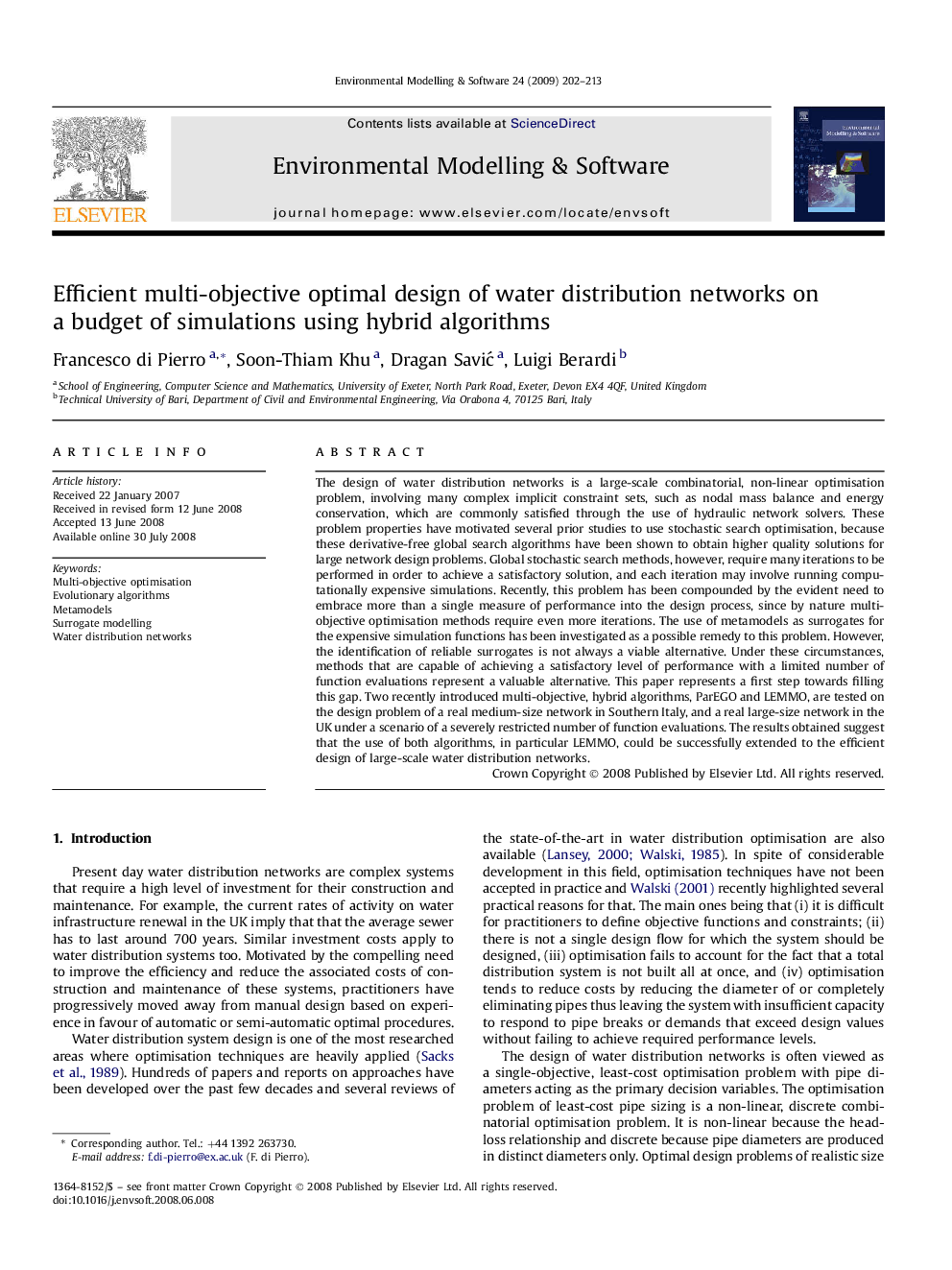| Article ID | Journal | Published Year | Pages | File Type |
|---|---|---|---|---|
| 570059 | Environmental Modelling & Software | 2009 | 12 Pages |
The design of water distribution networks is a large-scale combinatorial, non-linear optimisation problem, involving many complex implicit constraint sets, such as nodal mass balance and energy conservation, which are commonly satisfied through the use of hydraulic network solvers. These problem properties have motivated several prior studies to use stochastic search optimisation, because these derivative-free global search algorithms have been shown to obtain higher quality solutions for large network design problems. Global stochastic search methods, however, require many iterations to be performed in order to achieve a satisfactory solution, and each iteration may involve running computationally expensive simulations. Recently, this problem has been compounded by the evident need to embrace more than a single measure of performance into the design process, since by nature multi-objective optimisation methods require even more iterations. The use of metamodels as surrogates for the expensive simulation functions has been investigated as a possible remedy to this problem. However, the identification of reliable surrogates is not always a viable alternative. Under these circumstances, methods that are capable of achieving a satisfactory level of performance with a limited number of function evaluations represent a valuable alternative. This paper represents a first step towards filling this gap. Two recently introduced multi-objective, hybrid algorithms, ParEGO and LEMMO, are tested on the design problem of a real medium-size network in Southern Italy, and a real large-size network in the UK under a scenario of a severely restricted number of function evaluations. The results obtained suggest that the use of both algorithms, in particular LEMMO, could be successfully extended to the efficient design of large-scale water distribution networks.
